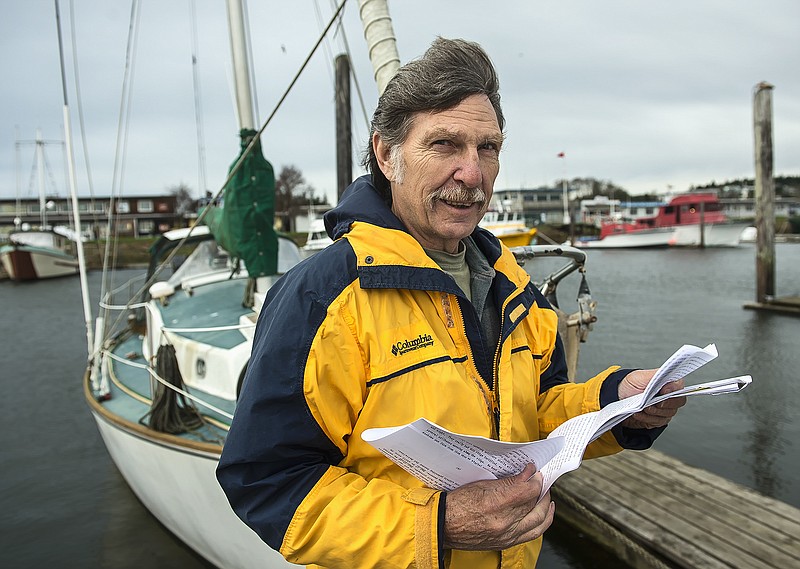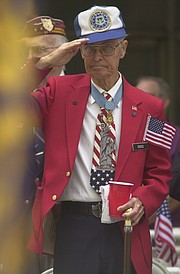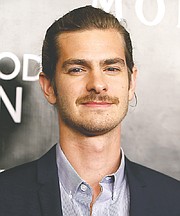TACOMA, Wash. - Mel Gibson's new film "Hacksaw Ridge" tells the story of a World War II soldier, Desmond Doss, who won the Congressional Medal of Honor for single-handedly rescuing 75 wounded soldiers.
On an escarpment known as "Hacksaw Ridge" on Okinawa, Doss refused to find cover, plunged into the line of fire to find his injured comrades, and one by one lowered them down a cliff with rope to friendly hands.
"One more," Andrew Garfield - who plays Desmond Doss - repeats to himself as he lowers another wounded soldier to safety, his hands soaked with blood. "Lord, please help me get one more."
But this is no ordinary war hero. A devout Seventh-day Adventist, Doss refused to touch a gun. He was the first conscientious objector to receive the congressional medal. And his son, Desmond Doss Jr., of Ilwaco, Wash., says the movie is ultimately not about war or patriotism. It is about love. About a man who gave it unconditionally.
"This movie is really a love story," Doss Jr. says. "That's what we need in this world is more caring for each other. And here's an example of somebody that was a vehicle for some incredible love."
Doss Jr. says it was a "perfect" portrayal of his father. It's like he came alive on the screen, he says. Garfield, an Australian, perfected Doss Sr.'s mannerisms, from his Southern dialect to his "quiet determination." So it was emotional for both of them when Desmond Jr. met Garfield.
"He asked me what I thought of what he did. I says, 'You nailed it. It's perfect.' And he was moved by that," Doss says. "He wanted to do that. He wanted to become my father."
Desmond Doss Sr. grew up in Virginia and was drafted in 1942. He became a private first class for the 1st Battallion, 307th Infantry in the 77th Division, but spent his first two years persecuted by the U.S. Military. His nuanced, quiet strength throughout those challenges were perfectly captured on the big screen, Doss Jr. says.
"I just couldn't believe it," Doss says. "I was just completely taken by it. I thought I was watching my mother and my father."
Doss says his father's heroic act on Hacksaw Ridge was not a one-time incident. He had received the Bronze Star for his work as a combat medic on Guam and the Philippines. But even before that, his son says, Doss was a man of unconditional love, day in and day out.
He found his faith as a boy, inspired by a poster of the 10 Commandments on the wall of his home. The Sixth stuck out: "Thou shalt not kill." Even before he entered the military, young Desmond's faith was tested by his father, William Doss, who was abusive toward his mother. That struggle is depicted in the film, too.
Doss Sr. did not always receive considerate treatment in return. Because the solider refused to bear arms, an officer tried to have him discharged on grounds of mental illness. He also tried to court-martial Doss for refusing a direct order.
"Sometimes I hear people saying he was patriotic. Well he was, but that's not the point," Doss says. "The point is he just had this love for people."
Doss Jr., who cleans the post office and volunteers as a firefighter, says he's not religious himself but has a spiritual life.
"I can't imagine life without it," he says. "There's a statement in the Bible that says God is love. I try to think in those terms - what's loving, what's caring, what's compassionate."
For Doss Jr.'s first five years of childhood, he wasn't allowed to see his dad. Desmond Doss returned home in 1946 with serious injuries in his arm and legs. He had contracted tuberculosis. Doss Jr. was 5 years old by the time his father was no longer contagious and able to check out of the hospital.
"The war is never over. It's just never over," he says. "It affects the people that were there but it goes way beyond that. It affects the families. It's very disruptive to life."
Doss Sr. died in 2006 at his home in Alabama. Film directors had been after him for years to make a movie, but he only authorized Gibson to do a feature film. A book about his life is called "The Unlikeliest Hero."
Doss Jr. says he didn't have a "normal" life with his parents; much of it was surreal, like moments when he would find himself in a room with hundreds of Medal of Honor recipients.
Even now, his father continues to influence his life in unbelievable ways. Doss Jr. was quietly working at the post office in Ilwaco when calls began streaming in about his father. He's met movie stars and Mel Gibson. And he just returned home a week ago after a trip to California to see the premiere and across the country.
What his father did in World War II was a "natural outgrowth" of who he was, his son says. And now, more than ever in a world of division, Desmond Doss Jr. says he hopes people get the right message out of the movie.
"That's who he was. Some people know who they are. I sincerely hope that people walk away with that insight and connection with their own self. Who am I? What's intrinsic to me?" he says. "Am I fearless or am I fearful?"


